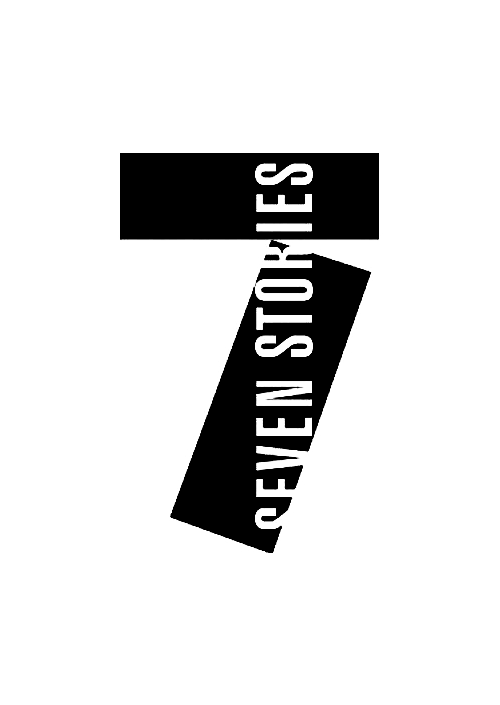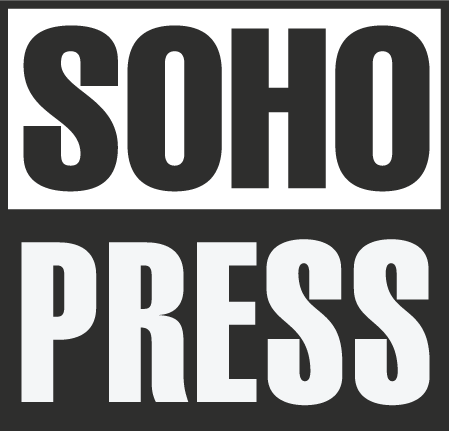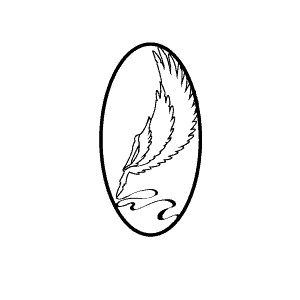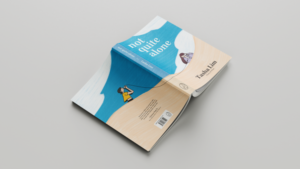Literary fiction is a broad category given to books that focus predominantly on character, theme, and style — often above plot. These novels are, because of their literary ‘merit’, considered to be among the ripest pickings for prestigious awards like the National Book Award and the Booker Prize.
If you’re writing literary fiction (which, since you’re here, is pretty likely), it’s essential that you find the perfect publisher to back you up — especially if you’re aiming for the ‘award-winning author’ status. However, it can feel overwhelming choosing between different publishers and understanding what makes each one tick. That’s why I’ve compiled this neat list of the best publishers of 2022. (Keep in mind that many publishers open and close their submissions throughout the year — so don’t be discouraged if your favorites aren’t open just yet!)

1. Penguin Random House
I’d be remiss to not include one of the biggest names in the industry here — though Penguin Random House is truly made great by the over three-hundred separate, genre-specific, publishing imprints that operate under it. With a history dating all the way back to the 1800s, it’s unsurprising that this ever-growing company has published more than a couple of internationally renowned titles — Margaret Atwood’s The Testaments, her critically acclaimed sequel to The Handmaids Tale stands out as a recent example.
That said, many authors are put off submitting just by the sheer size of the company. Luckily, in the age of the internet, it’s easier than ever to learn how to get a book deal, network with other authors, and find literary professionals. So, don’t let the size of any publisher scare you away from your goals! You can find their submission guidelines here.

2. Harvard Square Editions
As their name might imply, this publishing company is run by Harvard University alumni with a passion for literary fiction. Despite being a smaller publisher, and thus having a smaller budget, Harvard Square Editions’s commitment to quality has helped them garner a multitude of awards — such as the National Book Award’s ‘5 Under 35’ for S. Li’s Transoceanic Lights.
Harvard Square editions are particularly interested in any literary fiction that seeks to make a comment on social, political, spiritual, or environmental issues and themes. As of 2022, they are on the hunt for manuscript submissions that explore their usual themes through an international, dystopian, or fantastical lens. If this appeals to you, make sure to head over to their submissions page!

3. Autumn House Press
Founded in 1998 to support poets otherwise rejected by economically driven American publishers, Autumn House Press is now a thriving nonprofit corporation based in the state of Pennsylvania. They’ve since expanded to publish fiction and nonfiction alike — titles of which have benefitted from the same level of care in their design and manufacturing as the anthologies that helped build a name for the press.
Autumn House Press’s mission is to promote literature as an art, grow local communities, and support first-time authors, as well as those contemporary writers whose work may be overlooked by more commercial publishers. So, if you want to support and be supported by a heartfelt nonprofit publisher, Autumn House Press may well be the one for your submission.

4. 8th House Publishing
8th House Publishing is a newer publisher, specializing in (and passionate about) all things literary fiction, philosophy, and esoterica. With their roots firmly in Montreal and New York, the company is keen to support local artists by using their art exclusively for book covers and illustrations — so all of their books definitely have a personal touch.
Sound up your street so far? Well, if your manuscript happens to be modern, radical, inventive (or basically anything that strays from the beaten path), then you’ll probably get along well with this publisher. You can find their submissions page right here.

5. Gray Wolf Press
Gray Wolf Press is another publisher whose roots lie with poetry — they have since branched out to become one of America’s leading nonprofit publishers, now including literary fiction as well as nonfiction in their lists.
Each year, they publish thirty to thirty-five books, ranging from local to international writers and first-time authors to seasoned veterans. These numbers are certainly reflective of their mission to champion international authors at all career stages without prejudice. Their most recent foray into literary fiction is Chilean author Nona Fernández’s The Twilight Zone: A Novel — which was a finalist for the National Book Award for Translated Literature. If you feel excited by their international approach to publishing, then you can send them your submission right here.

6. Seven Stories Press
Seven Stories Press pride itself on their ‘fiercely independent spirit’ and eye for releasing high-quality fiction, poetry, and political books alike. Between 2000 and 2016 they launched an imprint in the UK, as well as international imprints focused on Spanish-language and children’s and YA texts. As much as 25% of their publications in any period may be a work in translation in languages ranging from French to Spanish to Polish to Korean. This was all with a view to increasing their range of representation across countries and cultures — as well as making their services more accessible for authors everywhere.
As long as the quality of the writing and content holds up, they say they’ll publish any text — particularly if it also happens to shake the status-quo of any given genre. This one is definitely worth checking out if you’re looking to make a statement! You can find their submissions here.

7. Coffee House Press
Coffee House Press dreams of becoming America’s leading independent publisher. Their mission is to influence fiction as we know it by combining it with off-page initiatives that champion the relevancy of literature to every other discipline — and they’re definitely on the right track. With several publications winning (and running up) awards such as the National Book Award, Coffee House Press’s approach to supporting literary communities and building strengths through author network connections is clearly working.
If you fancy becoming a part of a sincere and connected community of literary writers, as well as getting a sound book deal, then you should probably head over to their submissions page!

8. Soho Press
Soho Press is an imprint of the parent publishing company Soho, created specifically with a view to publishing and empowering authors of literary fiction. Across their collective imprints (Soho Press, Soho Crime, and Soho Teen), Soho publishes an impressive eighty to ninety books a year, each as inventive and gripping as the last.
Their interest lies with unique and daring literary voices, and they certainly don’t shy away from publishing new authors on the scene — though you might also spy novels by well-known names, such as Stephen Fry, on their list! So, if you’re looking for a literary fiction-specific publisher that publishes authors of all career stages, then I’d definitely suggest Soho Press. You can find their submissions here.

9. Simon & Schuster
It probably won’t surprise you to know that Simon & Schuster is one of the largest publishing companies. Founded in New York almost a hundred years ago, they now own various branches across the globe — offering opportunities and connections to aspiring authors anywhere.
Because of their size and influence, Simon & Schuster receive countless unsolicited submissions every day; so they won’t accept manuscript submissions that aren’t sent through a professional literary agent. That said, they do have a self-publishing service called Archway Publishing that they’ll likely point you to otherwise.
But, with a well-prepared and formatted manuscript, and a good agent on the side, there’s no reason to shy away — especially if you fancy having your novel sit alongside the works of literary fiction giants like F. Scott Fitzgerald and Phillipa Gregory! Find their submissions page here.

10. Farrar, Straus and Giroux
Farrar, Straus, and Giroux (or, FSG) is an imprint of Macmillan Publishers that earned a name for themselves through their multinational list of award-winning fiction. Their impressive list of literary fiction authors includes a multitude of names you’ll probably recognize, such as Sally Rooney and Paul Beatty.
FSG doesn’t make a point of specifying any ‘mission’ or literary theme that they favor in submissions, so if you’ve not yet found a publisher whose message you really ‘click’ with, this could be a good choice. That said, they don’t accept unsolicited manuscripts from authors without agents, and whatever work you can send must be sent through the post. So make sure to put together a good team of professionals to support you if you decide to submit here — it’ll be worth it!
—
Choosing the right publisher for you is often a long and personal process, but hopefully, this post has helped you narrow down the choice. Don’t worry if you’re still unsure though — it might be the case that traditional publishing isn’t the right fit for you in the first place. If so, consider self-publishing! After all, isn’t literary fiction divergent by definition? Nowadays, you can find everything from professional editors to experts in book marketing online, so you’ll never truly be alone in the publishing process if you just know where to look.
Savannah Cordova is a writer with Reedsy, a marketplace that connects self-publishing authors with the world’s best editors, designers, and marketers. In her spare time, Savannah enjoys reading contemporary fiction, listening to audiobooks, and writing short stories.




